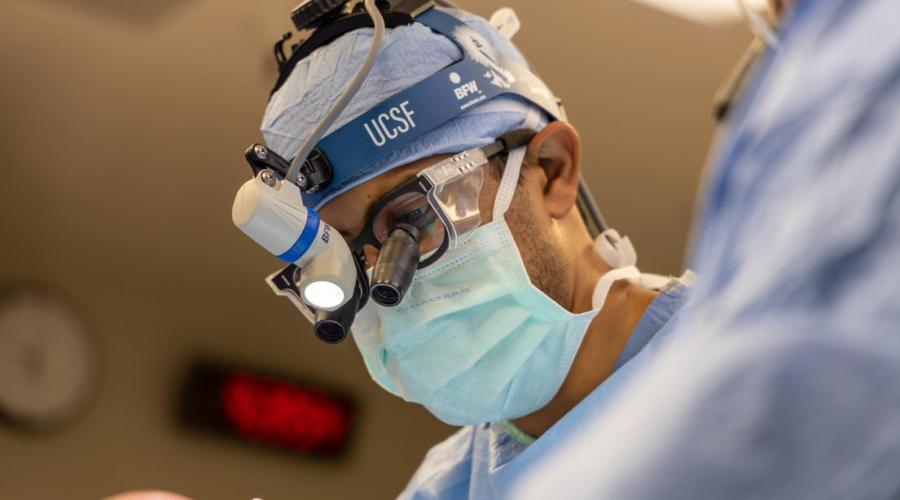
Specialty Care for Rare Disease Improves Equity, Study Shows
UCSF neurosurgery resident Kunal Raygor, MD and Chief of Vascular Neurosurgery Adib Abla, MD published a study that illustrates the value of treating children with rare diseases at specialty centers like UC San Francisco.
The study in The Journal of Neurosurgery Pediatrics looked at treatment for moyamoya disease, a rare but serious type of cerebrovascular disorder than can cause stroke and hemorrhage. Revascularization surgery is the best standard treatment to prevent future cerebrovascular events in children with this condition.
In analyzing a national database, the researchers found that rates of surgery for pediatric patients with moyamoya disease were lower for Hispanic and African-American children than for white and Asian children—disparities that closely match economic stratification.
High-income patients were revascularized 50% of the time vs. 35% of the time for low-income patients. Likewise, privately insured and self-pay patients had higher revascularization rates than those with Medicaid.
“People think of socioeconomic disparities in access to care as happening mostly to adults,” Dr. Raygor said. “It can be surprising, as well as disheartening, to realize they exist with children as well.”
The good news, however, was that these disparities in revascularization rates vanished for pediatric patients at medical centers that have high volumes of moyamoya cases. The takeaway, said Dr. Raygor, is that moyamoya patients can have equal access to surgical care by being directed to high-volume centers.
Even if patients needed to travel across the county to receive care at a high-volume center, it would still save insurers about $88,000 per case due to reduced lengths of hospital stay and fewer complications, noted an editorial for Dr. Raygor and colleagues’ study.
“UCSF treats many adult and pediatric moyamoya patients, along with other cerebrovascular pathologies,” Dr. Raygor said. “It’s important for patients to know they can get very good care by coming here.”
Dr. Raygor was selected for the American Association of Neurological Surgeons’ Robert Florin Resident Award for 2022 based on the abstract for this paper.
